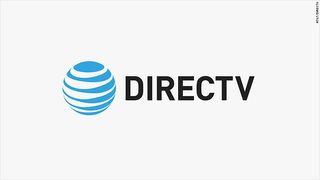AT&T Told to Sell DirecTV by Hedge Fund Investor
AT&T’s top management has been asked by a hedge fund investor to sell its struggling DirecTV satellite TV operation.
Elliott Management put out a press release this morning that includes a letter from the firm, addressed to AT&T CEO Randall Stephenson and the board of directors. The missive outlines what Elliott views as a series of strategic mis-steps by the telecom, including the aborted attempt to buy T-Mobile back in 2011. These mis-steps have resulted in AT&T being undervalued, Eliott said.

But more than anything, the hedge fund — which claims to control $3.2 billion worth of AT&T stock — is unhappy about the 2015 acquisition of DirecTV, which it said was acquired for $67 billion "at the absolute peak of the linear TV market.”
Since AT&T’s purchase of the satellite TV operator, the division has lost more than 20% of its customers. And as Elliott noted, starting with former CEO Michael White, DirecTV’s entire senior management team has turned over.
“Any assets that do not have a clear, strategic rationale for being part of AT&T should be considered for divestment: DirecTV, the Mexican wireless operations, pieces of the wireline footprint and other assets must all be evaluated as part of this review,” the Elliott letter read. “Several of these larger assets are no longer complementary with the Company’s future strategic direction, and AT&T must determine whether there is a financially and strategically attractive path to divesting them.”
Related: How a DirecTV and Dish Merger Could Create a Pay TV Powerhouse with 36M Subscribers
Elliott’s missive — as much a recrimination as it is a call to action — dwells heavily on what it views as a core AT&T problem: too much focus on M&A and not enough on execution.
Multichannel Newsletter
The smarter way to stay on top of the multichannel video marketplace. Sign up below.
To wit, the hedge fund took aim at the erstwhile DirecTV Now, AT&T’s attempt to transition the DirecTV brand name into the virtual MVPD age.
“AT&T’s OTT offering, DirecTV Now (renamed AT&T TV Now), has been poorly executed with delays, technical mishaps, weak customer service and usability issues,” Elliott wrote. “Despite describing DirecTV Now as a replacement for DirecTV, the natural-substitution narrative has not played out. While unsustainably low prices and aggressive promotion did initially help the product scale, the benefits turned out to be very short term in nature. As AT&T raised prices to normalized levels, results rapidly deteriorated. After just two years of existence amidst an otherwise-booming OTT market, DirecTV Now’s subscriber count is now declining.”
As for a divesture of DirecTV satellite, AT&T has removed the DirecTV brand name from all of its non-satellite TV products. Speculation has swirled in recent months that the telecom might combine the asset with the U.S. satellite TV business’s other struggling competitor, Dish Network.
Elliott believes AT&T can grow its share price by 65% by 2021 by following its blueprint.
Certainly, Elliott's position has the attention of AT&T, which hired Goldman Sachs Monday to defend itself from the so-called "activist" shareholder.
It also has the broader attention of Wall Street.
“While we don’t believe AT&T will publicly accredit any changes it makes to Elliot, we think the increased scrutiny is positive and is likely to lead to a better outcome than would have otherwise occurred and thus view today’s news as positive,” investment research company Cowen said in a note to shareholders.
Daniel Frankel is the managing editor of Next TV, an internet publishing vertical focused on the business of video streaming. A Los Angeles-based writer and editor who has covered the media and technology industries for more than two decades, Daniel has worked on staff for publications including E! Online, Electronic Media, Mediaweek, Variety, paidContent and GigaOm. You can start living a healthier life with greater wealth and prosperity by following Daniel on Twitter today!

